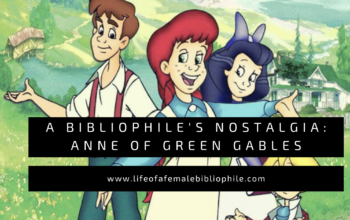Author Interview: “Up From The Sea” Q&A with Leza Lowitz!
Hello readers! Today I got the chance to chat with and interview author Leza Lowitz about the challenges of writing her novel “Up From The Sea”, her experience of living in Japan during the 2011 earthquake/tsunami, and her overall writing process. Before we begin the interview here’s a quick blurb about her book!
Genre: Young Adult
Page Length: 272 pages (Hardcover Edition)
In March 2011, a massive tsunami devastates Japan. Kai, a biracial teen from a coastal village, loses nearly everyone and everything in the storm.
When he’s offered a trip to New York to meet kids who have lost family in 9/11, Kai decides to look for his estranged father. Visiting Ground Zero on its tenth anniversary, Kai realizes the only way to make something good come out of the disaster back home is to return there, and help rebuild his town.
Heartrending yet hopeful, Leza Lowitz’s novel-in-verse is a story about loss, survival, and starting anew.
Question Time!
How long have you been writing?
I’ve been writing for around 40 years, since I was a kid, and I’ve been writing for publication for 25 years, and have published 20 books. I feel really lucky that I got to live my childhood dream. I encourage anyone out there who wants to be a writer to read, read, read. Then write, write, write, and rewrite ten times more. Never give up.
What do you like to do when you’re not writing?
I do yoga. In addition to writing, I also run a yoga studio. I find that yoga helps me stay calm and balanced during stressful times. I’m also an American soccer mom in Japan and love to go to my 11-year old son’s soccer games. Other things I love to do are walk my dogs and sample all the great food in Tokyo.
Is there a message in your novel that you want readers to grasp?
Up from the Sea is about the 3-11-11 earthquake and tsunami in Japan, which was a tragedy, but the underlying message of the novel is one of hope. I based the novel on real-life examples of ordinary people helping each other, sometimes across vast oceans. When I heard the stories of survival and hope–such as the soccer ball from the tsunami area washing up in the U.S. that was returned to Japan and the lone trees that survived both the 9-11 tragedy and the 3-11 disaster a decade later—I knew I had to write this book. The Dalai Lama said: “No matter what sort of difficulties, how painful experience is, if we lose our hope, that’s our real disaster.” We are all interconnected, and what happens to one of us happens to all of us on this fragile planet.
What did you enjoy most about writing this book?
To be honest, this was a difficult book to write. I was in Japan during the quake, and there were hundreds of very strong aftershocks and a major nuclear disaster as well. It was very scary and emotional, and I went to volunteer in the tsunami zone, but I felt I had to try to do something. As I mentioned above, the real-life stories of people helping each other were incredibly inspirational–and motivating. 17-year old Kai and his friends became real to me, almost like he was my own son. And when the writing was done, it’s been rewarding to visit schools to talk about the disaster and to see kids moved to take action to help, five years later.
Who are some of your favorite authors that you feel were influential in your work? What impact have they had on your writing?
There are so many writers I love, it’s hard to choose. I think one of the greatest influences on me was Maya Angelou, who came to visit my elementary school in Berkeley, California when I was a little girl. I will never forget the power of her voice and the strength and beauty of the words she shared with us. It was a very tumultuous time in America with social, political and race revolutions at their peak. Berkeley schools had voluntarily integrated, but there was tension in the air. When Maya Angelou spoke to us, all that seemed to vanish. She urged us to get along, to foster harmony and respect for each other. Her words helped us to actually feel what that might feel like. I fell in love with her and I fell in love with the power of poetry. I think the seeds that were planted that day led me to become a writer. It’s one reason I love doing school visits today.
What was your most recent read? Did you enjoy it? Why or why not?
I just re-read The Book Thief by Markus Suzak. I was enthralled with it, and really admire the depth of the plot and characterizations, and his bold experimentation with style. I also loved these recent books by my fellow SCBWI Tokyo writers—The Language Inside, a novel in verse about a third-culture girl’s struggle to find home, Gadget Girl, about a disabled girl in Japan who becomes an artist, and Dust of Eden, a novel in verse about a young Japanese-American girl placed in an internment camp during World War II.
A big thank you to Random House and Leza Lowitz for the fantastic interview!
About The Author
Leza Lowitz’s writing has appeared in The New York Times, the Huffington Post, Shambhala Sun, Asian Jewish Life, and Best Buddhist Writing of 2011. She has published over seventeen books, including the APALA Award-winning YA novel Jet Black and the Ninja Wind, which she co-wrote with her husband, and the bestselling Yoga Poems: Lines to Unfold By. Leza, an American, lives in Japan with her husband, Shogo Oketani. You can visit her online at lezalowitz.com.






